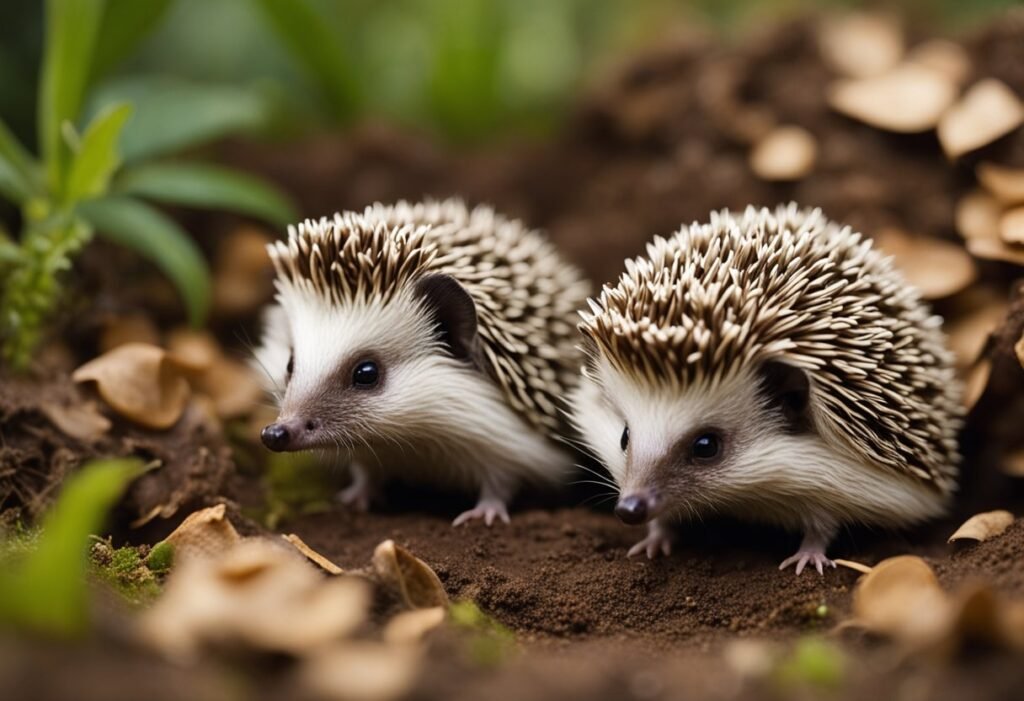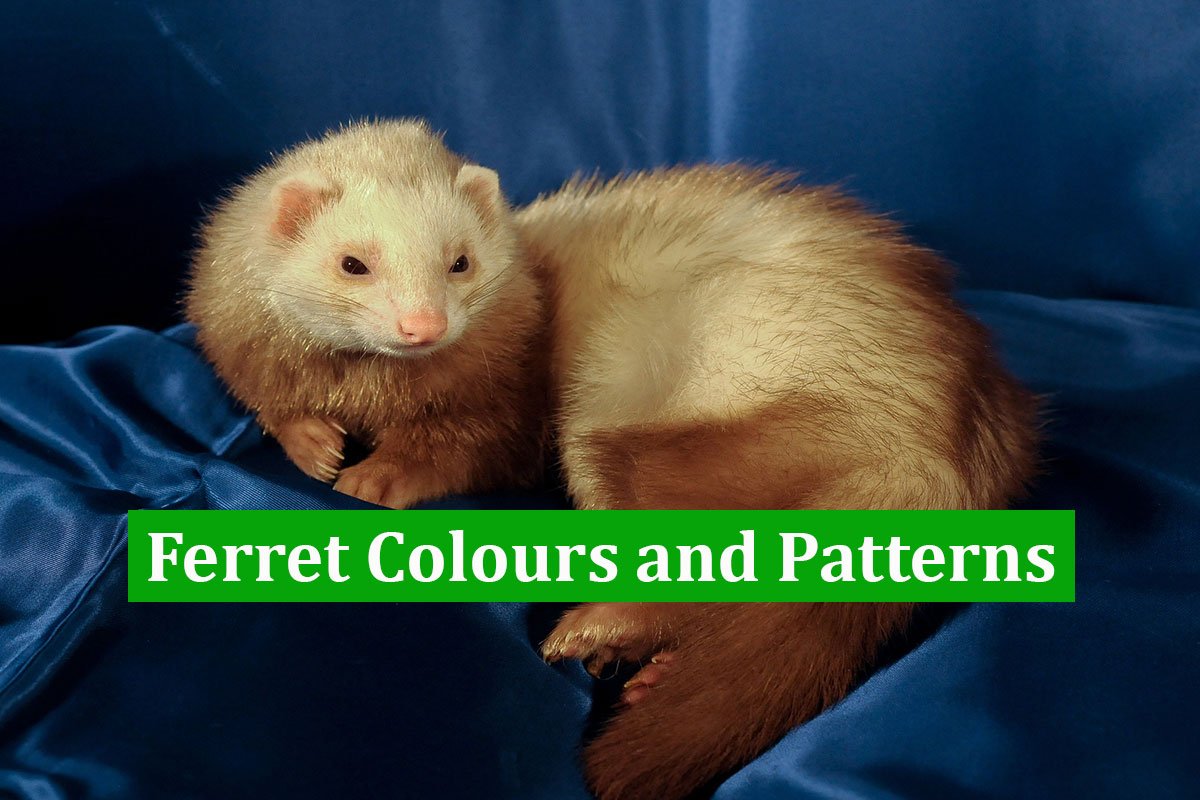African pygmy hedgehogs are popular pets that are known for their cute and cuddly appearance. As with any pet, it’s important to make sure they are getting the proper nutrition to maintain their health. One question that often arises is whether or not these hedgehogs can eat slugs.

The answer to this question is not a straightforward one. While some sources claim that slugs are safe for hedgehogs to eat, others warn against it. Slugs can carry parasites and bacteria that can be harmful to hedgehogs, so it’s important to take precautions if you do decide to feed them slugs.
If you’re considering feeding slugs to your African pygmy hedgehog, it’s important to do your research and consult with a veterinarian to determine if it’s a safe option for your pet. In this article, we’ll explore the potential risks and benefits of feeding slugs to hedgehogs and provide tips on how to safely incorporate slugs into their diet.
Table of Contents
Understanding African Pygmy Hedgehogs

African Pygmy Hedgehogs are small, nocturnal, insectivorous mammals that are native to Africa. They are also commonly kept as pets due to their cute and cuddly appearance. They are relatively easy to care for and can live up to 5 years in captivity.
African Pygmy Hedgehogs have a unique diet that consists of insects, fruits, and vegetables. They require a high-protein diet to stay healthy, and their diet should be supplemented with calcium and vitamins.
It is important to note that African Pygmy Hedgehogs are not able to digest lactose, so dairy products should be avoided. In addition, they are prone to obesity, so their diet should be carefully monitored.
While African Pygmy Hedgehogs are primarily insectivores, they have been known to eat fruits and vegetables as well. However, it is important to ensure that their diet is balanced and that they are not consuming too much of any one food.
In terms of slugs, there is no clear consensus on whether African Pygmy Hedgehogs can eat them. Some sources suggest that they can, while others advise against it due to the potential risk of parasites and other health issues.
Overall, it is important to provide African Pygmy Hedgehogs with a balanced and varied diet to ensure their health and well-being.
Dietary Habits of African Pygmy Hedgehogs

African Pygmy Hedgehogs are insectivores and their natural diet includes insects, worms, and other invertebrates. In captivity, they are often fed a diet consisting of dry cat food, mealworms, and occasional fruits and vegetables. However, it is important to note that not all human foods are safe for them to eat.
When it comes to slugs, it is not recommended to feed them to African Pygmy Hedgehogs. Slugs can carry parasites and bacteria that can be harmful to the hedgehogs. Additionally, slugs have a high moisture content which can cause digestive issues for hedgehogs.
It is important to provide a balanced and varied diet for African Pygmy Hedgehogs to ensure they receive all the necessary nutrients. In addition to their main diet, they can be given occasional treats such as boiled eggs, cooked chicken, and small amounts of fruits and vegetables.
Overall, it is important to research and carefully select appropriate foods for African Pygmy Hedgehogs to ensure their health and well-being.
Can African Pygmy Hedgehogs Eat Slugs

We know that hedgehogs are primarily insectivores, but they are known to consume other small animals as well. But can African Pygmy Hedgehogs eat slugs? The answer is a bit complicated.
While slugs are not toxic to hedgehogs, they can carry parasites and diseases that can be harmful to these little creatures. Eating slugs can lead to lungworm infection, which can be fatal to hedgehogs. Additionally, slugs can contain high levels of salt, which can cause dehydration and other health issues in hedgehogs.
However, if a hedgehog does consume a slug, it is not necessarily a death sentence. If caught early, lungworm infection can be treated with medication. Additionally, hedgehogs can tolerate small amounts of salt, so a single slug is unlikely to cause any harm.
In general, it is best to avoid feeding your African Pygmy Hedgehog slugs. Instead, stick to a diet of high-quality hedgehog food and occasional treats like mealworms or crickets. If you suspect your hedgehog has consumed a slug, keep an eye out for signs of illness and consult with a veterinarian if necessary.
Overall, while it is technically possible for African Pygmy Hedgehogs to eat slugs, it is not recommended due to the potential health risks.
Potential Risks of Eating Slugs

While African pygmy hedgehogs may enjoy eating slugs, there are potential risks associated with this behavior. One of the primary concerns is the possibility of ingesting parasites or harmful bacteria that may be present in the slug’s digestive system.
Slugs are known to carry a variety of parasites, including lungworms and nematodes, which can be harmful to hedgehogs. These parasites can cause a range of symptoms, including respiratory problems, weight loss, and even death.
In addition to parasites, slugs may also carry harmful bacteria such as Salmonella or E. coli. These bacteria can cause serious illness in hedgehogs and may even be transmitted to humans who handle the animals.
Another concern is the potential for slugs to contain toxins or other harmful substances. Some species of slugs produce toxic compounds as a defense mechanism, and these compounds can be harmful or even deadly to hedgehogs.
Overall, while it may be tempting to offer slugs as a treat to your African pygmy hedgehog, it is important to be aware of the potential risks and to take steps to minimize them. If you do choose to offer slugs as a treat, be sure to thoroughly wash and cook them first to reduce the risk of contamination.
Alternative Food Options for African Pygmy Hedgehogs

While African pygmy hedgehogs are primarily insectivores, they can benefit from a varied diet that includes other foods. If you are looking for alternative food options for your hedgehog, here are some options to consider:
High-Quality Cat Food
High-quality cat food can be a good option for hedgehogs, as it provides a balanced mix of protein, fat, and fiber. Look for cat food that has a high percentage of animal protein and does not contain fillers like grains or corn. Avoid cat food that contains fish, as it can lead to urinary tract problems in hedgehogs.
Cooked Chicken or Turkey
Cooked chicken or turkey can be a good source of protein for hedgehogs. Avoid feeding your hedgehog raw meat, as it can contain harmful bacteria. Make sure to remove any bones and skin before feeding it to your hedgehog.
Fruits and Vegetables
Hedgehogs can eat small amounts of fruits and vegetables as part of a balanced diet. Good options include blueberries, raspberries, bananas, apples, carrots, and green beans. Avoid feeding your hedgehog citrus fruits or anything that is high in sugar.
Mealworms and Crickets
Mealworms and crickets are a good source of protein for hedgehogs. You can purchase these insects at pet stores or online. Make sure to feed your hedgehog only small amounts of insects, as they can be high in fat.
Overall, it is important to remember that hedgehogs have specific dietary needs and should not be fed human food or junk food. Always consult with a veterinarian if you have any questions about your hedgehog’s diet.
Conclusion
Based on our research, African pygmy hedgehogs can eat slugs, but it is not recommended. Slugs can carry parasites and bacteria that can be harmful to hedgehogs. Additionally, slugs have a high moisture content, which can cause digestive issues for hedgehogs.
While hedgehogs are known to eat insects and other small animals in the wild, it is important to provide them with a balanced diet in captivity. A diet consisting mainly of insects or other small animals can lead to nutritional deficiencies.
Instead of feeding your African pygmy hedgehog slugs, we recommend providing them with a high-quality commercial hedgehog food that is specifically formulated to meet their nutritional needs. You can also supplement their diet with small amounts of fruits, vegetables, and insects.
If you do choose to feed your hedgehog slugs, make sure they are thoroughly washed and cooked to kill any potential parasites or bacteria. Always monitor your hedgehog for any signs of illness or digestive issues after feeding them slugs.
In summary, while African pygmy hedgehogs can technically eat slugs, it is not recommended due to the potential health risks. It is best to stick to a balanced diet of commercial hedgehog food and occasional supplements.
Frequently Asked Questions
What can hedgehogs eat?
Hedgehogs are omnivores, which means they can eat both plants and animals. In the wild, hedgehogs eat a variety of insects, worms, snails, and small animals like mice. They also eat fruits, vegetables, and nuts.
What vegetables are safe for hedgehogs?
Hedgehogs can eat a variety of vegetables, including carrots, sweet potatoes, green beans, and peas. However, it’s important to avoid feeding them vegetables that are high in oxalic acid, such as spinach and rhubarb, as this can lead to calcium deficiency.
Do hedgehogs eat worms or insects?
Yes, hedgehogs eat worms and insects in the wild. In captivity, you can feed them mealworms, crickets, and other insects as a treat.
Do hedgehogs eat mice or other meat?
Hedgehogs do eat small animals like mice in the wild. However, it’s not recommended to feed them live prey in captivity. Instead, you can feed them cooked chicken or turkey as a source of protein.
Can hedgehogs eat apples or bread?
Hedgehogs can eat small amounts of fruit, including apples, as a treat. However, it’s important to avoid feeding them too much sugar. Bread is not recommended as it doesn’t provide any nutritional value for hedgehogs.
Is it safe for hedgehogs to eat snails or slugs?
No, it’s not safe for hedgehogs to eat snails or slugs. These creatures can carry parasites and diseases that can be harmful to hedgehogs. It’s best to avoid feeding them these types of food.





